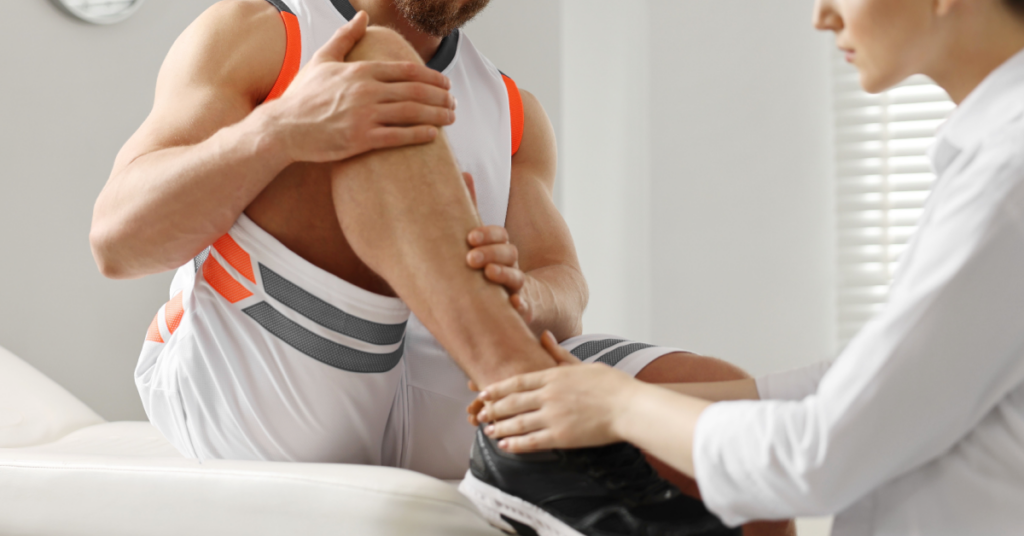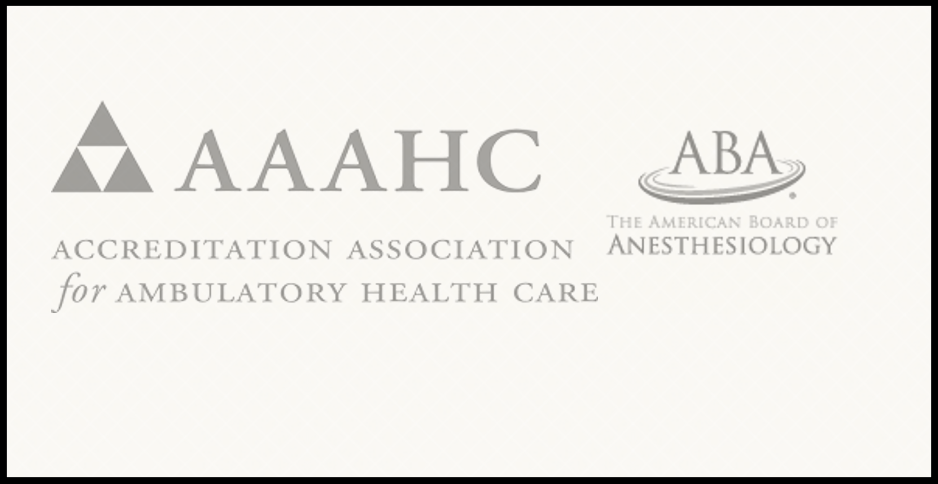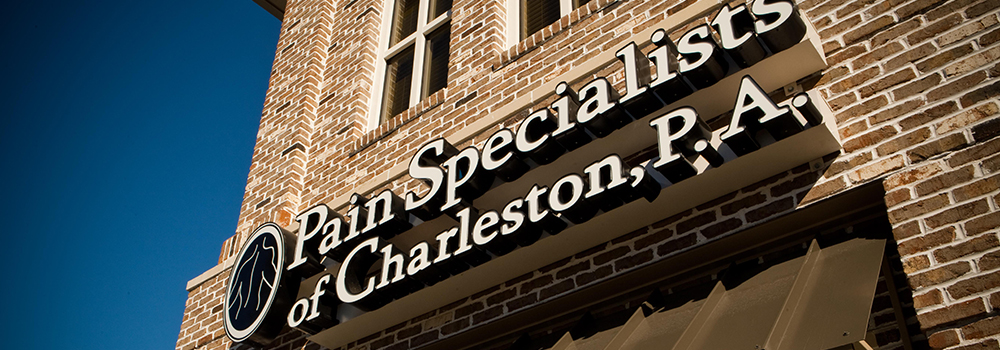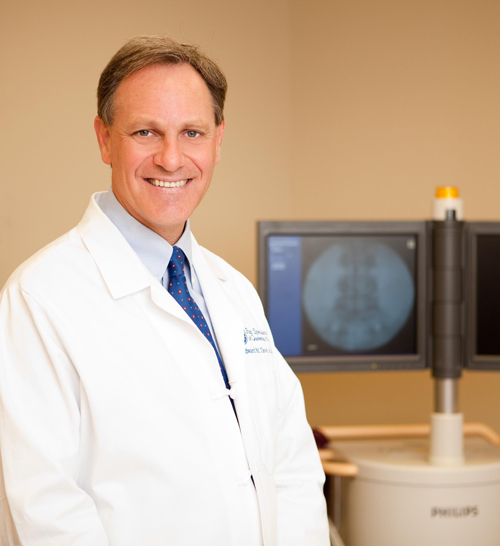Sports Medicine

SPORTS MEDICINE IN CHARLESTON ,SC
Sports medicine focuses on the prevention, diagnosis, treatment, and rehabilitation of injuries caused by sports or physical activity. This specialized brand of medicine combines medical knowledge and exercise science expertise to optimize athletic performance and lower the risk of injury.
At Pain Specialists of Charleston, our experienced pain management physicians will approach your pain through a variety of services to best meet your individual needs.
Our personalized approach involves collaboration with your healthcare team, including your primary care physician, physical therapist, chiropractor, specialists, and you, the patient. Let’s work together and help you get back on your A-game.
COMMON SPORTS INJURIES & SIGNS
- Achilles tendinitis: Inflammation or injury caused by overuse of the Achilles tendon
- Signs: Pain and stiffness at the back of the heel and lower leg, especially after running or extensive exercise.
- Acute fractures: Broken bone caused by a sudden injury
- Signs: Severe pain, swelling, inability to move the affected area, visible deformity
- Ankle sprain: Stretching or tearing of ankle ligaments when the ankle is rolled, twisted, or turned in an odd way
- Signs: Swelling, bruising, pain, difficulty walking on the injured ankle
- Bursitis: Inflammation of the bursae, the joint cushioning fluid-filled sacs
- Signs: Joint pain, swelling, redness, limited movement
- Dislocation: Occurs when the bones in a joint become separated
- Signs: Visible deformity, intense pain, swelling, immobility
- Fracture: A broken bone
- Signs: Severe pain, swelling, bruising, inability to move the injured part
- Golfer’s elbow (medial epicondylitis): Tendinitis causing pain on the inside of the elbow
- Signs: Pain and tenderness on the inside of the elbow, often extending to the forearm and wrist.
- Groin pull: Strain of the inner thigh muscles
- Signs: Pain in the inner thigh, swelling, difficulty moving the affected leg
- Growth plate fractures: Fractures affecting the growth plate, soft spots of growing cartilage located at the end of children’s bones
- Signs: Pain, swelling near the ends of bones, difficulty moving injured area
- Hamstring strain: Strain of the muscles at the back of the thigh
- Signs: Sudden sharp pain, swelling, bruising, difficulty walking
- Impingement: Pinched tendons of the rotator cuff
- Signs: Pain when lifting the arm, limited shoulder movement, weakness
- Instability: Loose shoulder joint causing repeated dislocations
- Signs: Frequent shoulder dislocations, pain, a feeling of looseness in the shoulder, shoulder feeling stuck, weakness
- Little league elbow: Growth plate injury in the elbow from repetitive throwing motions in children
- Signs: Inner elbow pain, swelling, weak or painful grip
- Meniscal tear: Tear of the knee’s shock-absorbing cartilage from twisting or turning the joint while the foot is planted, and the knee is bent
- Signs: Knee pain, swelling, difficulty moving the knee, a popping sensation, inability to bend or straighten the knee joint fully
- Rotator cuff injury: Injury to the rotator cuff’s muscles and tendons
- Signs: Deep, dull ache in the shoulder, weakness, limited range of motion, pain at night
- Runner’s knee: Knee pain behind or next to the kneecap due to overuse
- Signs: Pain around the kneecap, especially when running, squatting, kneeling, or using stairs
- Shin splints: Pain along the shinbone due to inflammation
- Signs: Tenderness or soreness along the inner side of the shinbone, mild swelling
- Sprain: Stretching or tearing of ligaments
- Signs: Pain, swelling, bruising, joint stiffness
- Strain: Twisting, pulling, or tearing of muscles or tendons
- Signs: Pain, muscle spasm, swelling, limited ability of injured muscle
- Stress fractures: Tiny cracks in bones from repetitive force or overuse
- Signs: Pain that worsens with activity, swelling, tenderness
- Tendon tear: Tearing of a tendon, most often in the knee
- Signs: Sudden sharp pain, swelling, bruising, limited joint function
- Tendinitis: Inflammation of tissue that connects muscle to the bone
- Signs: Pain, tenderness along a tendon, swelling, limited mobility
- Tennis elbow (lateral epicondylitis): Inflammation of the tendon that connects the forearm to the outer elbow
- Signs: Pain and tenderness on the outside of the elbow, weak grip strength
- Torn ligament: Tearing of a ligament, the rope-like fiber connecting bones
- Signs: A loud pop at the time of injury, severe pain, swelling, limited mobility
- Ulnar collateral ligament injury: Tear of the elbow ligament from repeated throwing or overhead movement
- Signs: Sudden pop or inner elbow pain, swelling, decreased throwing speed or accuracy, tingling or numbness in ring and pinky fingers
SYMPTOMS
The symptoms of your sports-related injury vary depending on the type of injury you endure. Most symptoms come in one of two forms: Acute, which are mild symptoms, and chronic, which are the more severe symptoms.
- Acute injuries can include:
- Sudden, severe pain
- Extreme swelling or bruising
- Inability to place weight on a leg, knee, ankle, or foot
- Limited joint mobility
- Extreme weakness of the affected limb
- A visibly out-of-place joint or bone
- Chronic injuries can include:
- Pain during play or exercise
- Swelling
- Dull ache when resting
RISK FACTORS
- Using incorrect exercise techniques
- Overtraining: Training too often, too frequently, or for too long
- Increasing intensity of physical activity too quickly
- Participating in the same sport year-round
- Consistent running or jumping on hard surfaces
- Not wearing shoes with proper support
- Not wearing proper equipment
- Having a prior injury
- Having certain anatomical features specific to a joint
- Poor flexibility
- Certain medications, including fluoroquinolones, a class of antibiotics linked to tendinitis and tendon rupture
The type of activity you participate in, your age, and your sex can affect the injuries you might be most susceptible to.
WHEN TO SEE A DOCTOR
If you are in pain, it is best to see a doctor.
While the injury might not seem like a big deal to you, a sports medicine professional can help ensure your injury heals properly. We understand sports and physical activity come with some aches and pains, so if you’re dealing with an ongoing issue, it’s time to visit a pain management physician.
Visit your doctor if you experience any of the following:
- Fracture
- Weakness
- Injured limb cannot bear weight
- Redness, swelling, numbness, or tingling
- Pain is increasing
- Your injury interferes with your quality of life
WHY SHOULD I SEE A SPORTS MEDICINE DOCTOR?
A sports medicine physician is a highly trained healthcare provider who specializes in treating your musculoskeletal system.
Your musculoskeletal system includes your bones, muscles, joints, tendons, ligaments, and connective tissues. Sports medicine physicians treat injuries caused by active lifestyles for both athletes and non-athletes alike.
Sports medicine physicians treat anyone who has an injury or non-surgical concern regarding their musculoskeletal system. You can see a sports medicine physician if you’re looking to start physical activities, participate in light physical exercise programs, or are a competitive athlete.

Request Appointment | Contact Us | Meet Pain Doctors
CAUSES
An acute sports injury is caused by a force of impact greater than the affected body part can withstand. A chronic sports injury is the result of a repetitive motion of a joint, ligament, or muscle. A sports injury can be caused by overuse which degrades tissues and joints, setting the stage for an acute injury to occur.
DIAGNOSIS
- Physical exam
At Pain Specialists of Charleston, your first visit will include a thorough evaluation that includes your medical history and a physical examination pertinent to your pain problem. This comprehensive visit with your pain specialist will last approximately 30 minutes.
TREATMENT
At Pain Specialists of Charleston, our board-certified team offers pain management treatment in the form of:
- Injections
- Injured Nerve Block
- Radiofrequency Ablation (Rhizotomy)
- Discography
- Neurostimulation, also known as Spinal Cord Stimulation
- Medical Massage Therapy
- Clinical Trials
- …and MORE!
MEET DOCTOR EDWARD M. TAVEL, JR., MD
- Over 20+ Years of Specialty Training
- Double-Board Certified in Anesthesiology and Pain Management
AWARDS & ASSOCIATIONS

AS SEEN ON

CONDITIONS WE MANAGE
- Knee Pain
- Chest Pain
- Shoulder Pain
- Back Pain
- Hip Pain
- Neck Pain
- & More
TREATMENTS WE OFFER
- Acupuncture
- Biofeedback
- Cognitive behavioral therapy
- Massage
- Meditation
- & More
WHY CHOOSE US

At Pain Specialists of Charleston, we strive to provide an unmatched healthcare experience – one focused on finding relief. With this goal guiding our pain management physicians, we prioritize the following:
Compassionate and Comprehensive Care
Our practice takes a multidisciplinary approach to pain care that puts patients first. We’re proud to offer a full range of pain management procedures and treatments, including physical therapy, medical massage therapy, pain psychology, medication management, and more.
Timely Treatment
Because many of our patients suffer from severe pain, we’re committed to scheduling appointments as quickly as possible. This ensures the speedy start of a treatment plan to relieve and/or manage their pain.
Access to Safe Pain Management
Pain Specialists of Charleston offers a higher level of healthcare, performing all interventional procedures to meet strict, sterile standards and rigorously comply with all FDA, CDC, state, and federal medical safety guidelines.
Quality Care
Our providers are not only prominent leaders in the field of pain management, but advocates for the Charleston, SC patients we so proudly serve. It’s our exceptional care that sets us apart and earns our patients’ trust.
FAQs
WHAT IS THE MOST PAINFUL SPORTS INJURY?
While this answer is subjective, injuries such as a torn ligament in the knee, dislocated joints, and compound fractures are among some of the most painful sports injuries to endure.
WHICH SPORT RESULTS IN THE MOST BROKEN BONES?
The National Library of Medicine states the highest rate of fractures occurred in football (4.61 per 10,000 athlete exposures) and the lowest rate in volleyball (0.52). In basketball and soccer, boys were more likely to sustain a fracture than girls.
WHICH SPORTS RESULTS IN THE MOST JOINT PAIN?
The sports that cause athletes the most joint issues include:
- Soccer
- Basketball
- Jumping sports
- Skiing
- Outdoor cycling
- Running
WHAT IS THE SAFEST PROFESSIONAL SPORT?
Swimming has been shown to sustain the fewest number of injuries in both men and women of any age, especially when compared to more intense contact sports like football or wrestling. Other safe sports include golf, badminton, and tennis.
WHICH SPORT RESULTS IN THE MOST SPORTS INJURIES?
According to John Hopkins Medicine, basketball has the highest number of injuries. More than 170,000 children aged from 5 to 14 were treated in emergency rooms for basketball-related injuries.
WHAT IS THE LEADING CAUSE OF DEATHS RELATED TO SPORTS?
Although sports-related deaths are rare, brain injuries are the leading sports-related injury that can result in death. In American children, 21% of all traumatic brain injuries are sports-related or recreational activity-related.
WHAT INJURIES ARE RARE IN SPORTS?
Eye injuries, dental injuries, neck and cervical injuries, dehydration, and heat illnesses are among the more rare sport-related injuries, according to the National Library of Medicine. In the study, it was shown that the injuries mentioned only accounted for 0.2% to 36.4% of sports injuries.
WHO IS MORE AT RISK OF GETTING A SPORTS INJURY?
If you partake in a sport or recreational physical activity, you’re at risk for a sports injury. However, there are certain risk factors that can increase your risk, including:
- Using incorrect exercise techniques
- Overtraining
- Abruptly changing the intensity of physical activity
- Playing the same sport all year long
- Running or jumping on hard surfaces
- Wearing shoes with poor support
- Not wearing the proper equipment
- A prior injury
- Having certain anatomical features specific to a joint that can affect mobility
- Poor flexibility
- Certain medications, such as fluoroquinolones, a class of antibiotics linked to tendinitis and tendon rupture.
Your age, sex, and the type of physical activity you participate in can affect your risk of injury.
WHAT IS THE DIFFERENCE BETWEEN ACUTE VS CHRONIC INJURIES RELATED TO SPORTS?
Sports injuries fall into two categories:
- Acute injuries: Happen suddenly or have no other related cause other than the event causing the injury.
- Chronic injuries: Typically related to overuse and can develop gradually over time.
Sometimes, wear and tear caused by overuse can result in acute injuries.
WHAT ARE THE MOST COMMON SPORTS INJURIES?
Some of the common sports-related injuries or injuries caused by jobs or hobbies that involve doing a repetitive motion include:
- Shoulder injuries, such as rotator cuff injury, impingement, and shoulder instability.
- Elbow injuries, including Tennis elbow (lateral epicondylitis), Golfer’s elbow (medial epicondylitis), Little league elbow, and Ulnar collateral ligament injury.
- Knee injuries, like Runner’s knee, a fracture, dislocation, torn ligament, Meniscal tear, or tendon tear.
- Leg injuries, such as a groin pull, hamstring strain, or shin splints.
- Ankle Injuries, including an ankle sprain or Achilles tendinitis.
WHAT ARE THE COMMON SYMPTOMS OF INJURIES RELATED TO SPORTS?
The symptoms you endure from a sports injury depend on your specific injury.
Acute injury symptoms include:
- Sudden, severe pain
- Extreme swelling or bruising
- Inability to bear weight on a leg, knee, ankle, or foot
- Limited joint mobility
- Extreme weakness of the affected limb
- Joint or bone visibly out of place
Chronic injury symptoms include:
- Pain during play or exercise
- Swelling
- Dull ache while resting
WHAT DO SPORTS MEDICINE DOCTORS DO?
A sports medicine physician can diagnose, treat, and manage your sports-related injuries as they pertain to your musculoskeletal system. They can assess any underlying conditions that may affect your performance and educate patients on how to prevent injury and exercise safely.
ARE SPORTS MEDICINE AND PHYSICAL THERAPY THE SAME?
A sports medicine specialist offers a variety of treatments for your injury, including surgery. Physical therapy is designed to help you recover from an injury through stretching, strengthening, and other therapeutic exercises.
At Pain Specialists of Charleston, our experienced team approaches your pain through a variety of services to best meet your individual needs. We work together with your healthcare team, including your physical therapist, primary care physician, chiropractor, and especially, you, the patient to get the high-level care you deserve.
ARE SPORTS MEDICINE DOCTORS AND ORTHOPEDIC SURGEONS THE SAME?
Both orthopedic surgeons and sports medicine doctors specialize in treating the body’s musculoskeletal system – your bones, muscles, and joints. Your orthopedic surgeon will perform surgery, while your sports medicine physician does not operate on your body.
ARE SPORTS MEDICINE PHYSICIANS AND KINESIOLOGISTS THE SAME?
Sports medicine doctors primarily work with patients, delivering direct care and treatment in a clinical setting. Those with a PhD in Kinesiology focus on research, studying, and advancing knowledge in the areas they specialize in.
WHAT DOES R.I.C.E. MEAN FOR SPORTS INJURIES?
With many minor sports injuries, you can help yourself heal at home. Sports medicine specialists recommend following the RICE rule after an injury:
- Rest
- Ice
- Compression
- Elevation
If your pain does not subside within a couple of weeks, or if the injured area is swelling, showing redness, or you’re experiencing weakness, schedule an appointment with a sports medicine physician to assess your injury.
WHAT HAPPENS DURING YOUR FIRST APPOINTMENT AT PAIN SPECIALISTS OF CHARLESTON?
During your first appointment, we will perform a thorough evaluation of your condition to get to the root cause of your pain and determine the best course of action to help you get back to your regular activities. This appointment typically takes 30 minutes. What Should I Bring?
ARE YOU ACCEPTING NEW PATIENTS?
Yes! Our pain management center is open to new patients, so give us a call today or request an appointment online.
DOES PAIN SPECIALISTS OF CHARLESTON REQUIRE A REFERRAL?
No, we don’t! We accept self-made appointments and referral appointments to begin assisting with your pain. We’re open five days a week, so contact us to get you scheduled for an appointment. No referral needed! Schedule your first appointment today! Book Now!
DOES PAIN SPECIALISTS OF CHARLESTON OFFER SAME-DAY APPOINTMENTS?
Yes, we do! Pain Specialists of Charleston offers same-day appointments, so you can get started on managing your pain as soon as possible. We’re open five days a week, so give us a call to see our board-certified pain doctors within the same day, if appointment slots are available.

